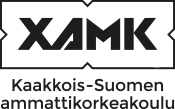Basics of measuring wellbeing (5 cr)
Code: WM00EJ65-3001
General information
Enrollment
08.11.2021 - 21.11.2021
Timing
10.01.2022 - 31.05.2022
Number of ECTS credits allocated
5 op
Virtual portion
5 op
Mode of delivery
Distance learning
Campus
Ecampus
Teaching languages
- English
- Finnish
Seats
0 - 40
Degree programmes
- Degree Programme in Wellbeing Management
Teachers
- Perttu Noponen
- Haija Muhonen
Teacher in charge
Haija Muhonen
Groups
-
WMMI21SPWellbeing management, full-time studies
Objective
You understand why and in what type of situations wellbeing data is collected.
You are able to identify various wellbeing measuring methods.
You can assess the suitability of different methods for different purposes and target groups.
Content
What is wellbeing data?
How has the collection of wellbeing data changed and what are the future perspectives (self- monitoring, MyData principle)?
What different methods can be used for measuring (measuring behavior vs. measuring results)?
What are the strengths and weaknesses of different methods in various purposes?
Materials
All the necessary study material can be found in the online learning environment at the beginning of the course.
Exam schedules
The course is assessed on the basis of a written assignment prepared during the course. The return of the assignment is agreed at the beginning of the course. The task is assessed numerically (Assessment scale 0-5).
Student workload
The scope of the course is 5 cr or 135h.
Content scheduling
The course has lecture recordings that can be viewed at a time that suits you.
In addition, the course has workshops, the schedule of which is marked in the syllabus and participation in which is voluntary. Workshops provide an opportunity to ask questions, receive guidance, work on and present small group / independently assembled tasks.
Further information
The teachers of the course are Haija Muhonen
Evaluation scale
1-5
Assessment methods and criteria
Students can
d. use professional vocabulary systematically.
e. look for information in the key information sources of the field.
f. identify interrelated tasks.
g. justify their actions according to the ethical principles of the professional field.
Assessment criteria equals to grade 3.
